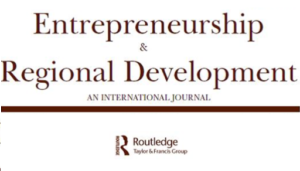Episode 45 – Claire Champenois & Sarah Jack – A non-workshop on a socialized view of entrepreneurship: building and extending a community of practice for work on embeddedness
This article, in an act of transmutation or world-making, replaces a workshop that was envisioned between one of the authors and Alistair Anderson. It takes the form of a dialog with one of his main co-authors to retrospectively and analytically explore the collective work of Alistair on ‘embeddedness’.
Read More
